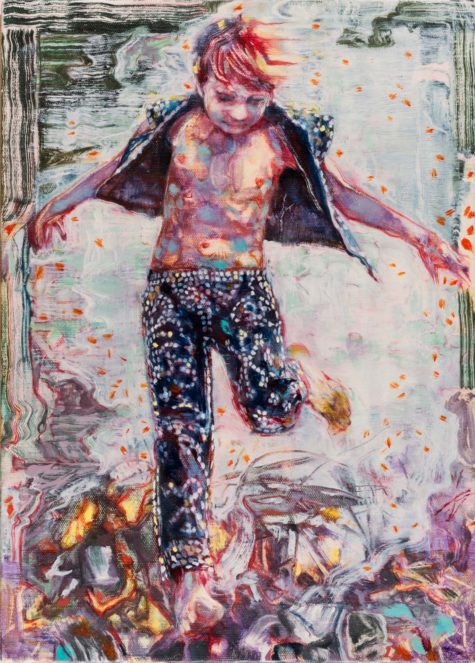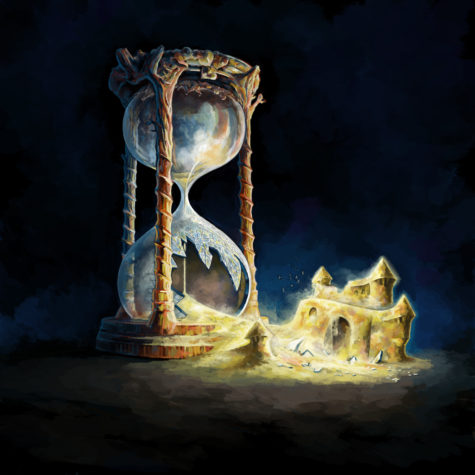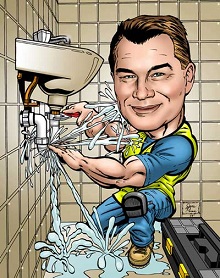good advice
He said, “Try to learn to breathe deeply, really to taste food when you eat, and when you sleep really to sleep. Try as much as possible to be wholly alive with all your might, and when you laugh, laugh like hell. And when you get angry, get good and angry. Try to be alive. You will be dead soon enough.”
~Ernest Hemingway
I found this in an email that my daughter forwarded to me way back in 2006. It’s a little bit sugary sweet for my taste, but I decided to share it here anyway.Also, it’s probably made the rounds on the internet uncountable times, and I guess I don’t care about that either. So here it is:
Subject: A NICE STORY…AND LOTS OF THINGS TO THINK ABOUT
The first day of school our professor introduced himself and challenged us to get to know someone we didn’t already know. I stood up to look around when a gentle hand touched my shoulder.
I turned around to find a wrinkled, little old lady beaming up at me with a smile that lit up her entire being.
She said, “Hi handsome. My name is Rose. I’m eighty-seven years old. Can I give you a hug?”
I laughed and enthusiastically responded, “Of course you may!” and she gave me a giant squeeze.
“Why are you in college at such a young, innocent age?” I asked.
She jokingly replied, “I’m here to meet a rich husband, get married, and have a couple of kids…”
“No seriously,” I asked. I was curious what may have motivated her to be taking on this challenge at her age.
“I always dreamed of having a college education and now I’m getting one!” she told me. After class we walked to the student union building and shared a chocolate milkshake. We became instant friends.. Every day for the next three months we would leave class together and talk nonstop. I was always mesmerized listening to this “time machine” as she shared her wisdom and experience with me.
Over the course of the year, Rose became a campus icon and she easily made friends wherever she went.
She loved to dress up and she reveled in the attention bestowed upon her from the other students. She was living it up.
At! The end of the semester we invited Rose to speak at our football banquet. I’ll never forget what she taught us. She was introduced and stepped up to the podium. As she began to deliver her prepared speech, she dropped her three by five cards on the floor. Frustrated and a little embarrassed she leaned into the microphone and simply said, “I’m sorry I’m so jittery. I gave up beer for Lent and this whiskey is killing me! I’ll never get my speech back in order so let me just tell you what I know.”
As we laughed she cleared her throat and began, “We do not stop playing because we are old; we grow old because we stop playing. There are only four secrets to staying young, being happy, and achieving success. You have to laugh and find humor every day. You’ve got to have a dream. When you lose your dreams, you die.
We have so many people walking around who are dead and don’t even know it! There is a huge difference between growing older and growing up.
If you are nineteen years old and lie in bed for one full year and don’t do one productive thing, you will turn twenty years old. If I am eighty-seven years old and stay in bed for a year and never do anything I will turn eighty-eight.
Anybody can grow older. That doesn’t take any talent or ability. The idea is to grow up by always finding opportunity in change. Have no regrets. The elderly usually don’t have regrets for what we did, but rather for things we did not do. The only people who fear death are those with Regrets.”
She concluded her speech by courageously singing “The Rose.” She challenged each of us to study the lyrics and live them out in our daily lives. At the year’s end Rose finished the college degree she had begun all those years ago.
One week after graduation Rose died peacefully in her sleep. Over two thousand college students attended her funeral in tribute to the wonderful woman who taught by example that it’s never too late to be all you can possibly be.
When you finish reading this, please send this peaceful word of advice to your friends and family, they’ll really enjoy it!
These words have been passed along in loving memory of ROSE.
- REMEMBER, GROWING OLDER IS MANDATORY. GROWING UP IS OPTIONAL.
- We make a Living by what we get, We make a Life by what we give.
- God promises a safe landing, not a calm passage. If God brings you to it, He will bring you through it.
Here’s a story by Tolstoy. I especially like it because I’m always wanting to know the right time to begin anything, the right people to listen to, and above all I’m constantly wanting to know what is the most important thing to do…
It once occurred to a certain king, that if he always knew the right time to begin everything; if he knew who were the right people to listen to, and whom to avoid, and, above all, if he always knew what was the most important thing to do, he would never fail in anything he might undertake.
And this thought having occurred to him, he had it proclaimed throughout his kingdom that he would give a great reward to any one who would teach him what was the right time for every action, and who were the most necessary people, and how he might know what was the most important thing to do.
And learned men came to the King, but they all answered his questions differently.
In reply to the first question, some said that to know the right time for every action, one must draw up in advance, a table of days, months and years, and must live strictly according to it. Only thus, said they, could everything be done at its proper time.
Others declared that it was impossible to decide beforehand the right time for every action; but that, not letting oneself be absorbed in idle pastimes, one should always attend to all that was going on, and then do what was most needful.
Others, again, said that however attentive the King might be to what was going on, it was impossible for one man to decide correctly the right time for every action, but that he should have a Council of wise men, who would help him to fix the proper time for everything.
But then again others said there were some things which could not wait to be laid before a Council, but about which one had at once to decide whether to undertake them or not. But in order to decide that one must know beforehand what was going to happen. It is only magicians who know that; and, therefore in order to know the right time for every action, one must consult magicians.
Equally various were the answers to the second question. Some said, the people the King most needed were his councilors; others, the priests; others, the doctors; while some said the warriors were the most necessary.
To the third question, as to what was the most important occupation: some replied that the most important thing in the world was science. Others said it was skill in warfare; and others, again, that it was religious worship.
All the answers being different, the King agreed with none of them, and gave the reward to none. But still wishing to find the right answers to his questions, he decided to consult a hermit, widely renowned for his wisdom.
The hermit lived in a wood which he never quitted and he received none but common folk. So the King put on simple clothes, and before reaching the hermit’s cell dismounted from his horse, and, leaving his bodyguard behind, went on alone.
When the King approached, the hermit was digging the ground in front of his hut. Seeing the King, he greeted him and went on digging. The hermit was frail and weak, and each time he stuck his spade into the ground and turned a little earth, he breathed heavily.
The King went up to him and said: ‘I have come to you, wise hermit, to ask you to answer three questions: How can I learn to do the right thing at the right time? Who are the people I most need, and to whom should I, therefore, pay more attention than to the rest? And, what affairs are the most important and need my first attention?’
The hermit listened to the King, but answered nothing. He just spat on his hand and recommenced digging.
‘You are tired,’ said the King, ‘let me take the spade and work awhile for you.’
‘Thanks!’ said the hermit, and, giving the spade to the King, he sat down on the ground.
When he had dug two beds, the King stopped and repeated his questions. The hermit again gave no answer, but rose, stretched out his hand for the spade, and said: ‘Now rest awhile — and let me work a bit.’
But the King did not give him the spade, and continued to dig. One hour passed, and another. The sun began to sink behind the trees, and the King at last stuck the spade into the ground, and said:
‘I came to you, wise man, for an answer to my questions. If you can give me none, tell me so, and I will return home.’
‘Here comes some one running,’ said the hermit, ‘let us see who it is.’
The King turned round, and saw a bearded man come running out of the wood. The man held his hands pressed against his stomach, and blood was flowing from under them. When he reached the King, he fell fainting on the ground moaning feebly. The King and the hermit unfastened the man’s clothing. There was a large wound in his stomach. The King washed it as best he could, and bandaged it with his handkerchief and with a towel the hermit had. But the blood would not stop flowing, and the King again and again removed the bandage soaked with warm blood, and washed and re-bandaged the wound.
When at last the blood ceased flowing, the man revived and asked for something to drink. The King brought fresh water and gave it to him. Meanwhile the sun had set, and it had become cool. So the King, with the hermit’s help, carried the wounded man into the hut and laid him on the bed. Lying on the bed the man closed his eyes and was quiet; but the King was so tired with his walk and with the work he had done, that he crouched down on the threshold, and also fell asleep — so soundly that he slept all through the short summer night. When he awoke in the morning, it was long before he could remember where he was, or who was the strange bearded man lying on the bed and gazing intently at him with shining eyes.
‘Forgive me!’ said the bearded man in a weak voice, when he saw that the King was awake and was looking at him.’I do not know you, and have nothing to forgive you for,’ said the King.
‘You do not know me, but I know you. I am that enemy of yours who swore to revenge himself on you, because you executed his brother and seized his property. I knew you had gone alone to see the hermit, and I resolved to kill you on your way back. But the day passed and you did not return. So I came out from my ambush to find you, and I came upon your bodyguard, and they recognized me, and wounded me. I escaped from them, but should have bled to death had you not dressed my wound. I wished to kill you, and you have saved my life. Now, if I live, and if you wish it, I will serve you as your most faithful slave, and will bid my sons do the same. Forgive me!’
The King was very glad to have made peace with his enemy so easily, and to have gained him for a friend, and he not only forgave him, but said he would send his servants and his own physician to attend him, and promised to restore his property.
Having taken leave of the wounded man, the King went out into the porch and looked around for the hermit. Before going away he wished once more to beg an answer to the questions he had put. The hermit was outside, on his knees, sowing seeds in the beds that had been dug the day before.
The King approached him, and said: ‘For the last time, I pray you to answer my questions, wise man.’
‘You have already been answered!’ said the hermit still crouching on his thin legs, and looking up at the King, who stood before him.
‘How answered? What do you mean?’ asked the King.
‘Do you not see,’ replied the hermit. ‘If you had not pitied my weakness yesterday, and had not dug these beds for me, but had gone your way, that man would have attacked you, and you would have repented of not having stayed with me. So the most important time was when you were digging the beds; and I was the most important man; and to do me good was your most important business. Afterwards, when that man ran to us, the most important time was when you were attending to him, for if you had not bound up his wounds he would have died without having made peace with you. So he was the most important man, and what you did for him was your most important business.
Remember then: there is only one time that is important — Now! It is the most important time because it is the only time when we have any power. The most necessary man is he with whom you are, for no man knows whether he will ever have dealings with any one else: and the most important affair is, to do him good, because for that purpose alone was man sent into this life!
~Leo Nikolayevich Tolstoy , 1903.
Truthfulness means authenticity, to be true, not to be false, not to use masks. Whatsoever is your real face, show it…and at whatsoever the cost.
To be authentic means to remain true to your own being. How to remain true? Three things have to be remembered.
- One, never listen to anybody, what they say for you to be.
Always listen to your inner voice, to what you would like to be; otherwise your whole life will be wasted. Your mother wants you to be an engineer, your father wants you to be a doctor, and you want to be a poet. What to do? Of course the mother is right because it is more economical, more financially helpful to be an engineer. The father is also right: to be a doctor is a good commodity in the market; it has a market value. “A poet? Have you gone mad? Are you crazy?”
Poets are people who are cursed. Nobody wants them. There is no need for them; the world can exist without poetry. There will be no trouble if poetry is not there. The world cannot exist without engineers; the world needs engineers. If you are needed you are valuable; if you are not needed you don’t carry any value.
But if you want to be a poet, be a poet. You may be a beggar. Good! You may not get very rich through it. Don’t worry about it, because you may become a great engineer and you may earn much money, but you will never have any fulfillment. You will always hanker, your inner being will hanker, to be a poet.
Remember, be true to your inner voice. It may lead you into danger; then go into the danger, but remain true to the inner voice. Then there is a possibility that one day you will come to a state where you can dance with inner fulfillment. Always look for the first thing is your being and don’t allow others to manipulate and control you. They are many: everybody is ready to control you, everybody is ready to change you, everybody is ready to give you a direction you have not asked for. Everybody is giving you a guide for your life. The guide exists within you; you carry the blueprint.
To be authentic means to be true to oneself. It is a very, very dangerous phenomenon; rare people can do that. But whenever people do it, they achieve. They achieve such beauty, such grace, such contentment, you cannot imagine. If everybody looks so frustrated, the reason is that nobody has listened to his own voice.
You wanted to marry a girl but the girl was a Mohammedan and you are a Hindu brahmin. Your parents wouldn’t allow. The society wouldn’t accept; it was dangerous. The girl was poor and you are rich. So you married a rich woman, Hindu, brahmin by caste, accepted by everybody but not by your heart. So now you live an ugly life. Now you go to the prostitute, but even prostitutes won’t help you. You have prostituted your whole life; you wasted your whole life.
Always listen to the inner voice, and don’t listen to anything else. A thousand and one are the temptations around you because many people are there peddling their things. It is a supermarket, the world, and everybody is interested in selling his thing to you; everybody is a salesman. If you listen to too many salesmen you will become mad. Don’t listen to anybody; just close your eyes and listen to the inner voice. That is what meditation is all about: to listen to the inner voice. This is the first thing.
- Then the second thing…
If you have done the first thing only then does the second become possible: never wear a mask. If you are angry, be angry. It is risky, but don’t smile because that is to be untrue. But you have been taught that when you are angry, smile; then your smile becomes false, a mask…just an exercise of the lips, nothing else. The heart full of anger, poison, and the lips smiling; you become a false phenomenon.
Then the other thing also happens: when you want to smile you cannot. Your whole mechanism is topsy-turvy because when you wanted to be angry you weren’t, when you wanted to hate you didn’t. Now you want to love; suddenly you find that the mechanism doesn’t function. Now you want to smile; you have to force it. Really, your heart is full of smile and you want to laugh loudly, but you cannot laugh, something chokes in the heart, something chokes in the throat. The smile doesn’t come, or even if it comes it is a very pale and dead smile. It doesn’t make you happy. You don’t bubble up with it. It is not a radiance around you.
When you want to be angry, be angry. Nothing is wrong in being angry. If you want to laugh, laugh. Nothing’s wrong in laughing loudly. By and by you will see that your whole system is functioning. When it functions, really, it has a hum around it, just as a car, when everything is going good, hums. The driver who loves the car knows that now everything is functioning well, there is an organic unity — the mechanism is functioning well.
You can see: whenever a person’s mechanism is functioning well, you can hear the hum around him. He walks, but his step has a dance in it. He talks, but his words carry a subtle poetry in them. He looks at you, and he really looks; it is not just lukewarm, it is really warm. When he touches you he really touches you. You can feel his energy moving into your body, a current of life being transferred…because his mechanism is functioning well.
Don’t wear masks; otherwise you will create dysfunctions in your mechanism…blocks. There are many blocks in your body. A person who has been suppressing anger, his jaw becomes blocked. All the anger comes up to the jaw and then stops there. His hands become ugly. They don’t have the graceful movement of a dancer, no, because the anger comes into the fingers — and blocked.
Remember, anger has two sources to be released from. One is the teeth, another is the fingers: because all animals, when they are angry, will bite you with their teeth or they will start tearing you with their paws. So the nails and the teeth are the two points from where the anger is released.
I have a suspicion that wherever anger is suppressed too much, people have teeth trouble. Their teeth go wrong because too much energy is there and it is never released. Anybody who suppresses anger will eat more; angry people will always eat more because the teeth need some exercise. Angry people will smoke more. Angry people will talk more; they can become obsessive talkers because, somehow, the jaw needs exercise so that the energy is released a little bit. Angry people’s hands will become knotted, ugly. If the energy was released they could have become beautiful hands.
If you suppress anything, in the body there is some part, a corresponding part, to the emotion. If you don’t want to cry, your eyes will lose their luster because tears are needed; they are a very alive phenomenon. When once in a while you weep and cry, really you go into it — you become it — tears start flowing down your eyes; your eyes are cleansed, your eyes again become fresh, young, and virgin. That’s why women have more beautiful eyes, because they can still cry. Man has lost his eyes because they have a wrong notion that men should not cry. If somebody, a small boy cries, even the parents, others, say, “What are you doing? Are you being a sissy?”
What nonsense, because God has given you — man or woman — the same tear glands. If man was not to weep, there would have been no tear glands. Simple mathematics! Why do the tear glands exist in man in the same proportion as they exist in woman? Eyes need weeping and crying, and it is really beautiful if you can cry and weep wholeheartedly.
Remember, if you cannot cry and weep wholeheartedly, you cannot laugh also, because that is the other polarity. People who can laugh can also cry; people who cannot cry cannot laugh. You may have observed sometimes in children: if they laugh loudly and long they start crying — because they are joined. In the villages I have heard mothers saying to their children, “Don’t laugh too much; otherwise you will start crying.” Really true, because the phenomena are not different — it is just that the same energy moves to the opposite poles.
The second thing: don’t use masks. Be true whatsoever the cost.
- The third thing about authenticity
Always remain in the present — because all falseness enters either from the past or from the future. That which has passed has passed; don’t bother about it. Don’t carry it as a burden; otherwise it will not allow you to be authentic to the present. All that has not come has not come yet. Don’t unnecessarily be bothered about the future; otherwise that will come into the present and destroy it. Be true to the present, and then you will be authentic. To be here-now is to be authentic. No past, no future: this moment all, this moment the whole eternity.
These three things, and you attain what Patanjali calls truthfulness. Then whatsoever you say will be true. Ordinarily you think you have to be alert to say the truth. I’m not saying that. I am saying: you create authenticity; whatsoever you say will be true. An authentic man cannot lie; whatsoever he says will be true.
In Yoga we have a tradition — it may not even be possible for you to believe it; I believe it because I have known it, I experienced it: if a real, authentic man lies, the lie will become true, because an authentic man cannot lie. That’s why in the old scriptures it is said, “If you are practicing authenticity, be alert not to say anything against anybody — because it can become true.” We have many stories of great seers who said something in anger, but they were so authentic….
You must have heard the name of Durvasa — a great seer, authentic man. If he says something, even he cannot cancel it. If he curses you, the curse is going to come true. If he says, “You will die tomorrow!” you will die tomorrow, because from that source of authenticity the lie is not possible. The whole existence follows an authentic man and then even he cannot cancel it.
It is beautiful. That’s why people go to great seers for their blessing: if they bless, it is going to come true. That is the meaning, nothing else. They go and they ask blessings. If the seer gives the blessings then they are not worried; it is going to happen now, because how can an authentic man say a lie? Even if it is a lie, it is going to be true. So I don’t say, “Tell the truth.” I say, “Be authentic and whatsoever you say is going to be true.”
From: Osho.com








